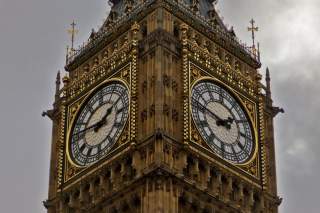5 Hard Truths about Brexit
British secession from the EU would be messier than anyone can imagine.
If, however, as is more likely, Britain slides into political chaos and infighting followed by economic hardships—maybe even recession—no member state would be tempted to follow in its footsteps.
The core of the EU, Germany and France plus a few other member states, may draw the conclusion that enough is enough. Enlargement might have seemed to be the right thing to do when its took place, but the verdict in 2016 is that the EU should have been more cautious. A much stronger core will emerge. In all member states, there are political forces advocating withdrawal, but they are unlikely to get into power or influence European policies. France knows it cannot do without links to the German economy, and Germany knows that it is strong, but not strong enough to do without France. That will keep these two member states together. It is a common destiny—and they know it.
It is rarely said, but with uncertainty, at best, surrounding the British nuclear deterrent the French force de frappe is the only nuclear deterrent available to the Europeans. The French know it. The Germans know it. With Russia rattling the saber, Germany quietly dreads being left with only the U.S. nuclear umbrella while hearing the noise from Washington about declining commitment to Europe.
The core of Europe will act as just that: the core. It will be built around the euro, the single currency. Those who want to come along can do so, but special rulers and exceptions will not be offered. Those who are in the core will exercise leadership plus full commitment. Those who do not do wish to do so can stay out. This does not mean a breakup of the EU, or a collapse, as some observers expect, but a different European Union from what we know.
We will see a multispeed and multilayered EU. The Treaty of Lisbon of December 1, 2009, foresaw this and explicitly allowed some member states to forge ahead through what is called “enhanced cooperation.”
This picture may look unpleasant for many observers and voters, but for Europe and the core of Europe it is a question of survival. Around the EU, from the northeast to the southwest, we find close to one billion people, many of whom look to Europe as the place where they want to live. Russia has turned its back on the rest of Europe. Ukraine is close to being in tatters. Turkey has gone into reverse gear and rejects European values. The Middle East is in turmoil. North Africa is a potential powder keg. Sub-Saharan Africa promises to be an economic heavyweight some decades in the future, but is currently home to poor people who dream of getting into Europe. China and India are fast taking over as the economic powerhouse of the future, eating into Europe’s share. The United States no longer sees the Atlantic Alliance as the cornerstone of its foreign and security policy. The bonds forged over several centuries in the wake of the European migration to America are becoming thinner.
How on earth can anybody imagine that any European nation-state can navigate on its own without running aground? How can anybody expect those who spot all these dangers and challenges to be held back from responding by those who do not see them or disregard them?
Joergen Oerstroem Moeller is a former state secretary in the Royal Danish Foreign Ministry. He is a visiting senior fellow at the ISEAS Yusof Ishak Institute, Singapore. He is an adjunct professor at Singapore Management University and Copenhagen Business School.
Image: Flickr/Lloyd Morgan

